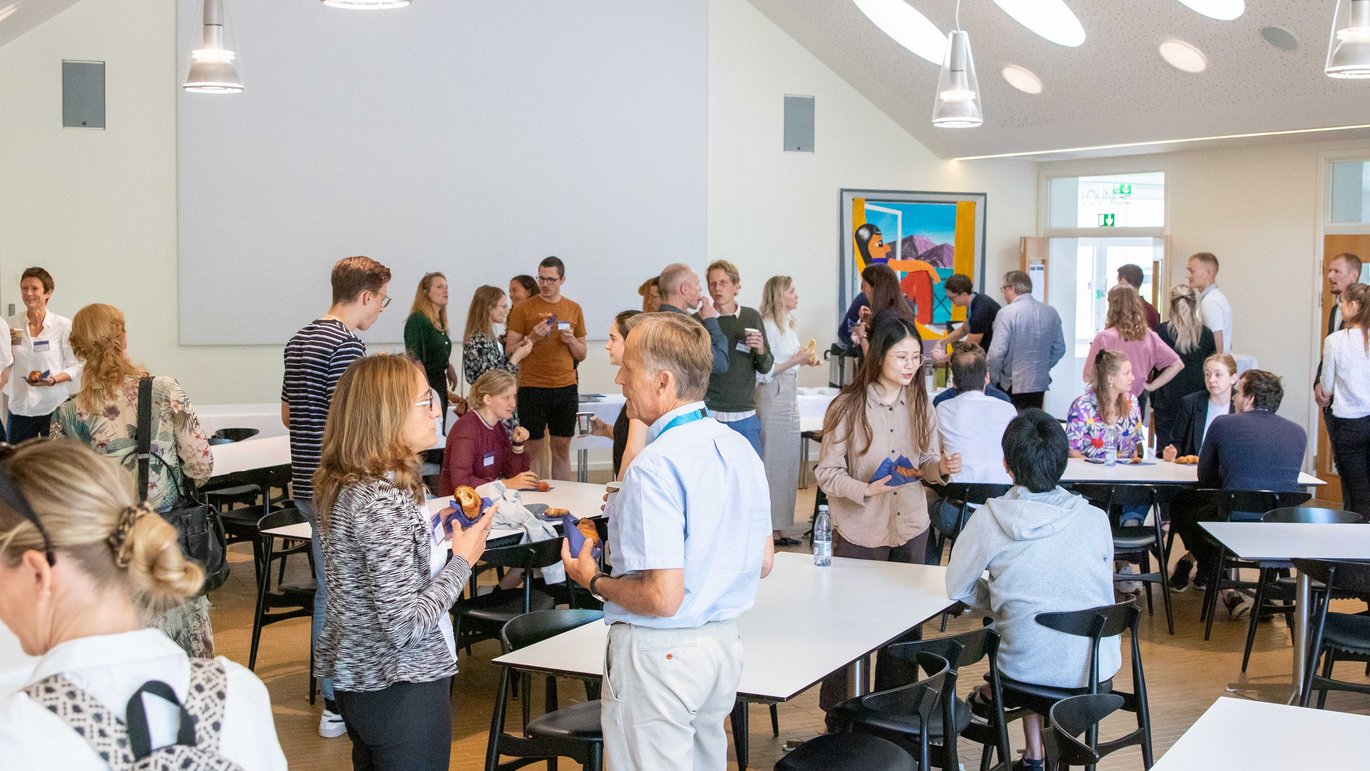Is there a clinician present? Come to the annual meeting of the Inflammation Network
On 8 March, the Inflammation Network at Health invites you to attend the third Inflammation Network Day. If you are a researcher – and perhaps even a clinician – you can read more here about why this network could represent a good opportunity for you.

Inflammatory and infectious diseases are the most common cause of death in the world, and at a global level, three out of five deaths are due to them.
“The figure continues to rise, and as a society we need to know more about, for example, the correlation between infection, inflammation and the development of autoimmunity or cancer,” says Trine Hyrup Mogensen, who is a professor at the Department of Biomedicine and the coordinating professor in the Steering Committee of the Faculty’s Inflammation Network, the purpose of which is to develop, share and disseminate knowledge about the subject.
In the Inflammation Network , researchers at all stages of their careers work to study the basic immunological mechanisms and pathophysiology involved in a wide range of diseases in which infection, inflammation and autoimmunity play a crucial role.
The network consists of researchers with different interests, such as diagnostic methods, epidemiological data, inflammation biomarkers, immunology, genetics and understanding of cell formation, tissue structures and cancer development.
You can also become part of this network.
Calling all clinicians and junior researchers
As a postdoc, PhD student or research year student you have a busy daily life, so it might seem tempting to ignore the possibilities of the Inflammation Network unless they are directly related to a specific research project. But this is a shame, says Trine Hyrup Mogensen.
“From a career point of view, membership of a research network is one of the most important things you can do to promote your career as a researcher or clinician. The network can help to open new doors, and you will have an opportunity to spar with experienced colleagues about your future career and specific tasks,” she says.
“A formal network gives you the chance to expand your personal network, both nationally and internationally. The Inflammation Network is open to all, and consists of people of all ages – including young people who are still studying.”
The network also has access to academic communities, such as the popular Omics Focus Group, where researchers can share their knowledge of Omics techniques, regardless of research area, department or career level.
Invitation to the annual meeting
On 8 March, the Inflammation Network invites you to attend its annual academic meeting, where future members will also be able to obtain an impression of the network in relation to, for example, new interdisciplinary initiatives in the area of inflammation and diseases with immune dysregulation.
“An important purpose of this meeting is to create dialogue, interaction and collaboration between clinicians and researchers in a broad context. This contributes to the development of new, exciting research projects which, for example, enable existing patient cohorts to be studied using the latest advanced molecular biological and immunological technologies. In this way, we can gain a deeper understanding of disease mechanisms, treatment responses, risk stratification, prognosis and much more,” says Trine Hyrup Mogensen and continues:
“In other words, if a clinician or clinical research team have patient samples, they may be able to link up with basic researchers at this event and potentially promote translational biomedical projects to better study infectious and inflammatory diseases at the mechanistic level and cellular level.”
The Inflammation Network at Health is hosting the third Inflammation Network Day, which will be dedicated to knowledge sharing. The day will consist of presentations by our own and international researchers and doctors, who build bridges between basic research and clinical research into inflammation, infectious diseases and autoimmunity.
Meet Anne-Mette Hvas, Dean of Health, and Professor Trine Hyrup Mogensen, the leading professor in the steering committee for the Inflammation Network .
The programme will include inspirational keynotes on, amongst other things, immunology, the microbiome, autoimmunity in relation to clinical specialties such as infectious diseases, rheumatology, gastroenterology, dermatology and oncology, as well as a large number of presentations from junior researchers.
Anyone interested in presenting their research project at the network meeting is encouraged to submit an abstract.
You can read more about the Inflammation Network and join it here
Register here for the annual meeting no later than 20 February
Contact
Network Coordinator Anja P. Einholm
Aarhus University, Health, Dean’s Office
Tel.: +45 9350 8408
E-mail: ape@au.dk
Professor, PhD, DMSc and Senior consultant in Infectious Diseases Trine Hyrup Mogensen
Aarhus University, Department of Biomedicine and
Aarhus University Hospital, Department of Infectious Diseases
Mobile: +45 2012 5280
E-mail: trine.mogensen@biomed.au.dk